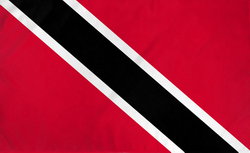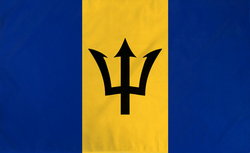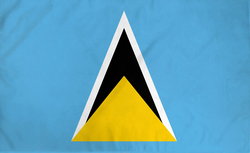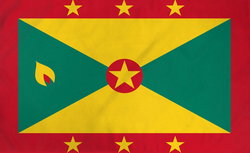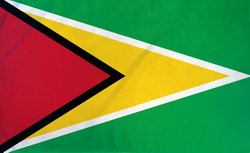[vc_row][vc_column][vc_single_image image=”2904″ img_size=”full” alignment=”center”][vc_column_text css=”.vc_custom_1468340470531{margin-bottom: 20px !important;}”]
RFS GROUP offers a wide range of products under the distinct business units of:
Fire and Flow Controls
Integrated Security Solutions
Industrial & Marine Maintenance
Chemicals & Lubricants
Respiratory & Safety
Water Misting Technologies
In the quest for bringing their customers up to the highest global safety standards, RFS Trinidad Limited was the first company in the English Speaking Caribbean to be “Lloyds Register” certified, which specializes in the supply, installation and maintenance of Fire Equipment and Suppression Systems within the industrial, marine and energy sectors.
The company is also the Caribbean agent for Wilhelmsen, which is amongst the worlds largest in the marine industry for all safety equipment service and repairs. RFS Group has also become ABS, DNV and STOW (Safe To Work) certified.
[/vc_column_text][vc_separator][vc_single_image image=”2897″ img_size=”full” alignment=”center”][vc_custom_heading text=”Wilhelmsen Ships Service At A Glance” font_container=”tag:h2|text_align:center” google_fonts=”font_family:Ubuntu%3A300%2C300italic%2Cregular%2Citalic%2C500%2C500italic%2C700%2C700italic|font_style:400%20regular%3A400%3Anormal”][vc_column_text css=”.vc_custom_1464961849392{margin-bottom: 20px !important;}”]
Wilhelmsen Ships Service is a leading provider of recognized products and services to the maritime industry. This includes safety products and services, Unitor marine products, Unitor and Nalfleet marine chemicals, maritime logistics and ships agency. These standardized product brands and service solutions are backed up by an unparalleled global service organization to meet your requirements for quality, availability and performance. We are part of Wilhelmsen Maritime Services AS, Wilhelmsen group of companies
WSS has over 40 years’ experience in the provision of inspection, reporting, maintenance & repair for fire and safety systems and equipment for the maritime industry. Our highly experienced, fully trained service personnel work from Class-Approved WSS Service Stations situated in 47 countries and are on hand 24/7, 365 days a year to manage your onboard fire and safety service requirements.
All WSS Service Stations are approved to ISO9001: 2008 and operate in accordance with IACS UR Z17 approvals. In addition, we have global approvals from seven major Classification Societies; DNV, Lloyds, RMRS, Korean Register of Shipping, RINA, GL and ABS as well as a number of local class approvals
[/vc_column_text][vc_separator][vc_single_image image=”2898″ img_size=”full” alignment=”center”][vc_custom_heading text=”Lloyd’s Register – improving safety, quality and performance” font_container=”tag:h2|text_align:center” google_fonts=”font_family:Ubuntu%3A300%2C300italic%2Cregular%2Citalic%2C500%2C500italic%2C700%2C700italic|font_style:400%20regular%3A400%3Anormal”][vc_column_text css=”.vc_custom_1464962348220{margin-bottom: 20px !important;}”]
Lloyd’s Register (LR) is a global engineering, technical and business services organization wholly owned by the Lloyd’s Register Foundation, a UK charity dedicated to research and education in science and engineering. Founded in 1760 as a marine classification society, LR now operates across many industry sectors, with over 9,000 employees based in 78 countries. We have a long-standing reputation for integrity, impartiality and technical excellence. Our compliance, risk and technical consultancy services give clients confidence that their assets and businesses are safe, sustainable and dependable. Through our global technology centers and research network, we are at the forefront of understanding the application of new science and technology to future-proof our clients’ businesses .Lloyd’s Register Marine is a leading provider of marine classification services around the world, helping ensure that internationally recognized safety and environmental standards are maintained at every stage of a ship’s life. But we are not just about surveying ships; we are dedicated to supporting the development of new technologies and innovations that will help our clients achieve the best possible performance from their ships and operations.
With an international network of some 8,200 people, we have an unrivalled view of the technical developments shaping shipping today. This means that, wherever our clients are, we are nearby and able to apply a genuine understanding of the challenges they face.
[/vc_column_text][vc_separator][vc_single_image image=”2443″ img_size=”full” alignment=”center”][vc_custom_heading text=”DNV ” font_container=”tag:h2|text_align:center” google_fonts=”font_family:Ubuntu%3A300%2C300italic%2Cregular%2Citalic%2C500%2C500italic%2C700%2C700italic|font_style:400%20regular%3A400%3Anormal”][vc_column_text css=”.vc_custom_1464962511127{margin-bottom: 20px !important;}”]
DNV Certification Explained Swire Oilfield Services provides standard, specialized and bespoke products certified to DNV2.7-1 and EN12079 to the worldwide oil and gas market. As more new markets start to demand such high standards with regards the environment and health and safety we are constantly striving to ensure that all our equipment meets the highest standards of certification. Of those certificates are the DNV2.7-1 and BS EN12079-1. In order to gain these certificates, a number of approval and certification procedures have to be followed. First of all, a DNV2.7-1 Certification is the Det Norske Veritas certification. The certification process consists of the following steps: A review of the design Inspection of the prototype and the prototype is also tested Inspection and testing of the production process after these steps are completed, the certification is then issued. But before this happens, an application for certification has to be sent to the DNV office that includes the size, function, and special features of the container, a specification of the standards and regulations that have to be covered, where the offshore containers are manufactured, and how many containers are to be manufactured. If a manufacturer hopes to manufacture just one or a few containers, individual certifications must be issued. However, a manufacturer that intends on manufacturing many of these containers may be issued a “Type Approval Certificate,” which enables the manufacturer to manufacture the same type again and again. There are also other standards for certification that can be met as well. That is where the BS EN12079-1 comes into play. There are two types to this certification: type one and type two. And when an offshore container is used for dangerous goods, it is certified according to what is called the IMDG code. What all of these certification requirements shows is that offshore containers used in the oil industry have to go through some very stringent requirements before they can be used. This is because, although oil is a natural part of the earth, it can contaminate waterways and be detrimental to the natural habitats of sea animals and animals that reside on the shore. This can eventually interfere with the food supply and water supply of people. So you can be rest assured that offshore containers used in the oil industry are made in a way that is very safe and secure.
[/vc_column_text][vc_separator][vc_single_image image=”2447″ img_size=”full” alignment=”center”][vc_custom_heading text=”ABS” font_container=”tag:h2|text_align:center” google_fonts=”font_family:Ubuntu%3A300%2C300italic%2Cregular%2Citalic%2C500%2C500italic%2C700%2C700italic|font_style:400%20regular%3A400%3Anormal”][vc_column_text css=”.vc_custom_1464962987661{margin-bottom: 20px !important;}”]
MANAGEMENT SYSTEMS CERTIFICATION
Choosing an accredited management system certification helps assure clients will get the business benefits and value they pay for. When using an Independent International Organization for Certification (IIOC) member with internationally recognized standards, customers, clients and stakeholders benefit from a highly robust and tested system of assurance. Once certified, management systems benefits include risk mitigation and improved operational efficiency, which leads to better performance, less waste, lower costs, and ultimately, greater profitability. A recent survey conducted by the International Accreditation Forum (IAF) reported that not only is accredited certification being used as a tool to deliver internal business improvement and to meet regulatory compliance, but businesses confirm to have experienced a positive effect on revenue.
As a world-leading certification body, ABS Quality Evaluations, an ABS Group company, we work with companies to assure the performance of their business, systems, people and supply chains through management system certification.
“Our audit and assessment programs are designed to be sensitive to the needs of each market we serve, while our global resources provide industry and technical expertise alongside an unmatched knowledge of management systems and certification processes.”
Our brand evokes a strong commitment to safety, quality, and care for the environment and this is demonstrated by helping clients minimize risk, improve operational efficiency, and maximize business performance. Our audit and assessment programs are designed to be sensitive to the needs of each market we serve, while our global resources provide industry and technical expertise alongside an unmatched knowledge of management systems and certification processes.
Our global team of experienced auditors is committed to helping clients improve performance and enhance sustainability through quality systems. We use a six-step certification process that includes an optional pre-assessment audit, documentation review and site survey, certification audit, certification decision and issuance, surveillance audits and renewal audits
[/vc_column_text][/vc_column][/vc_row][vc_row][vc_column][/vc_column][/vc_row][vc_row][vc_column][/vc_column][/vc_row]

